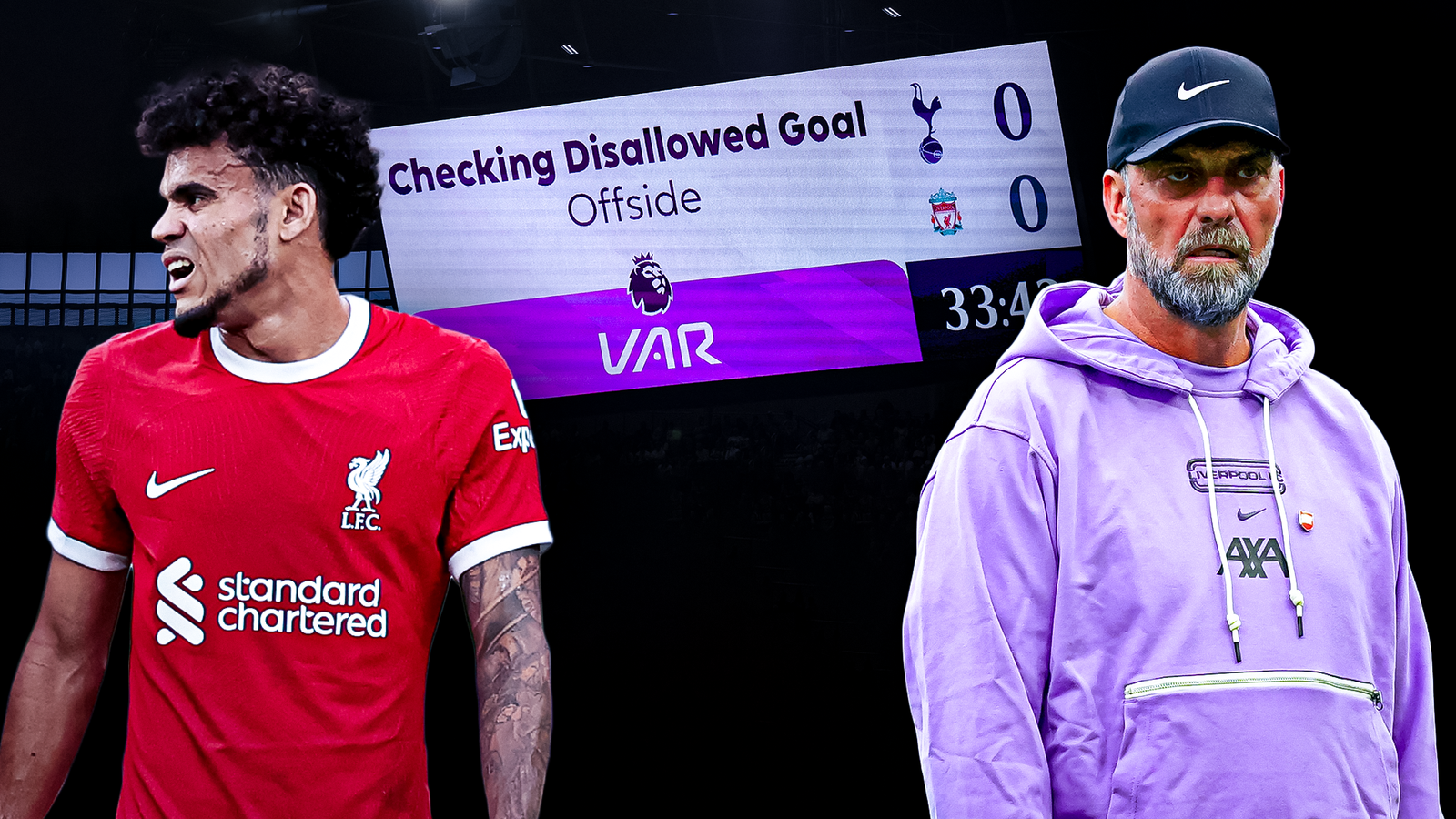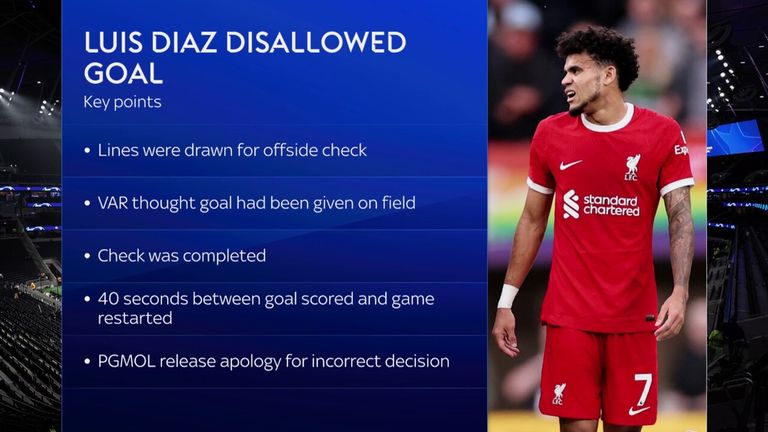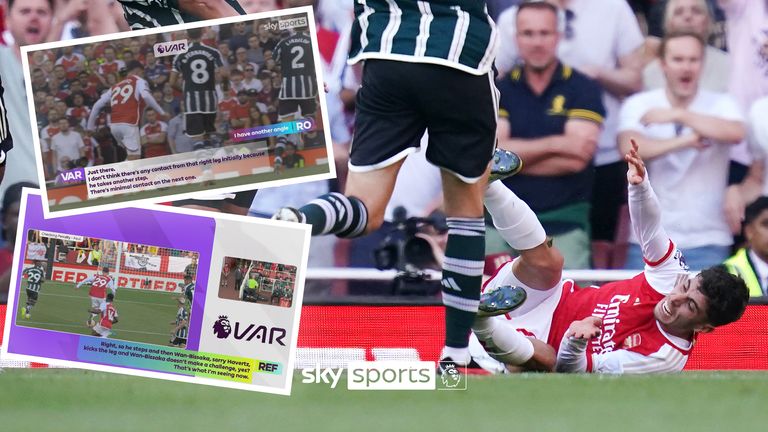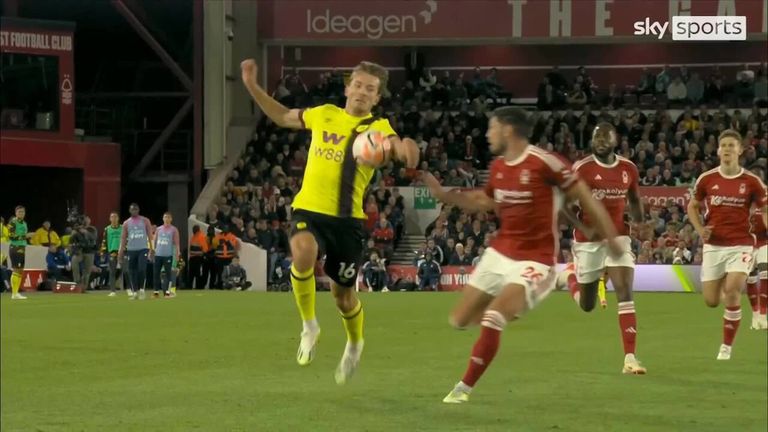The Premier League has admitted there have been 20 wrong VAR decisions this season but insists, according to a new survey, the “majority” of supporters are in favour of the technology – which they claim has led to a 14 per cent increase in correct decisions.
The details of that survey, conducted by the Premier League themselves, have not been made public, but Tony Scholes, the Premier League’s chief football officer, sat down with senior reporter Rob Dorsett to discuss VAR’s performance this season and plans to improve technology.
Do the stats show VAR is working?
The latest Premier League statistics show before VAR was introduced, 82 per cent of refereeing decisions were correct. Now, since VAR was introduced, 96 per cent of decisions are correct.
“VAR is, and remains, a very effective tool in supporting the match officials on the pitch,” Scholes says.
Two years ago, the Premier League set up an independent key match incidents panel (KMI panel), which assesses all the big decisions made by referees in every Premier League game.
The panel is made up of former players, former coaches and referees, who report their opinions so the Premier League and the Professional Match Game Officials Limited (PGMOL) can improve standards.
“The purpose of that panel is to analyse and take a view on every key decision made by the match officials in every single one of the 380 games,” Scholes explains.
“The output of that analysis is used to help coach the referees, to help give PGMOL management a view as to where the game, as represented by these former players and coaches, doesn’t agree with the approach that the referees are taking.”
Scholes is adamant the panel’s conclusions, having reviewed all of the refereeing decisions in the top division, proves VAR has improved decision-making since it was introduced for the 2019/20 season.
What about the stats for this season?
This season, the KMI panel has decided:
- VAR has intervened correctly on 57 occasions.
- There have been 20 VAR errors so far – but the Premier League says 17 of those have been a failure of VAR to intervene when the panel felt it should have done.
- There have been three “wrong” decisions this season when VAR has intervened:
- One of those errors was a factual mistake – when Luis Diaz’s goal for Liverpool was disallowed against Tottenham, when the VAR failed to properly communicate their decision that Diaz was onside when he scored.
- There have been two “subjective” errors when VAR intervened (and the panel felt it should not have done):
- Sander Berge’s goal against Nottingham Forest in September which would have put Sheffield United 2-1 up, but the panel felt that goal was incorrectly disallowed for handball after a VAR check.
- Also in September – when Arsenal played Manchester United and Antony Taylor gave a penalty for Aaron Wan-Bissaka’s foul on Kai Havertz, only for the penalty decision to be overturned because the VAR felt the contact was not sufficient to bring Havertz down.
Does the Premier League accept there are issues with VAR?
Yes. Scholes says there are two major issues he wants to see addressed with VAR going forward.
“These two elements, I believe, affect the whole reputation of VAR. The first is the amount of time it is taking to check decisions.
“We are doing too many checks, we’re taking too long in doing them as well. It’s to a degree understandable, given the level of scrutiny these guys are under. But the reviews are taking too long and it’s affecting the flow of the game and we’re extremely aware of that and the need to improve that speed while always maintaining the accuracy.”
The second area is the “in-stadium experience” for supporters, which Scholes says simply is not good enough.
“It’s nowhere near good enough. We know it’s not. It affects supporters’ enjoyment of the game and we know it needs to change.”
But Scholes goes on to say the Premier League’s major frustration is that it is powerless to change this.
“We’re constrained by IFAB at the moment,” he laments. “IFAB are very clear on their rules as to what we can and can’t say, both during the VAR process and post the VAR process. We cannot play the audio.
“My personal view is we’re on a journey and that we’ll get to a point where both the video and the audio is played live and then played again afterwards to explain the decision.
“How far we are away from that, I don’t know. That’s not in our hands. That’s decided by IFAB. But we will continue to lobby them to get to a place where VAR is as open, transparent and informative to supporters and all stakeholders as it is possible to do.”
What are the Premier League and PGMOL doing to improve standards?
Scholes has revealed for the first time both the Premier League and PGMOL have begun a new project, aimed at identifying future specialist VARs already working as referees further down the football pyramid.
“PGMOL is identifying referees, who are perhaps operating in the EFL or the National League, who they believe have got the attributes required in order to be a good VAR.
“Those people who are then selected will go through a training programme with the intention of developing a group of specialist VARs to supplement, not replace, those members of the select group who at the moment operate very effectively as VARs, as well as on the pitch.”
When will the PL introduce semi-automated offsides, as UEFA and FIFA have?
Scholes says there are plans to introduce it, but it may not be in place for the start of next season.
At the moment, two separate systems are being trialled, but he says there are technical concerns with both.
When a number of players are between the cameras and the ball, there have been some decisions where it has been hard to identify whether a specific body part is that of an attacker or a defender.
Scholes says until those concerns are completely eradicated, the Premier League will not consider introducing it.
“It’s what we call the edge cases. So those cases where many things are occurring at once, you might have a lot of bodies in one place, and it’s the ability of the system to identify different parts of the body.
“For the vast majority of cases, there won’t be an issue. But we want to be clear in our competition before we introduce anything that will give us unintended or unanticipated problems in other areas.”
Scholes says if those problems can be ironed out, semi-automated offside technology may be put to clubs to vote on later this year.
Get Sky Sports on WhatsApp!
You can now start receiving messages and alerts for the latest breaking sports news, analysis, in-depth features and videos from our dedicated WhatsApp channel!
Find out more here…




